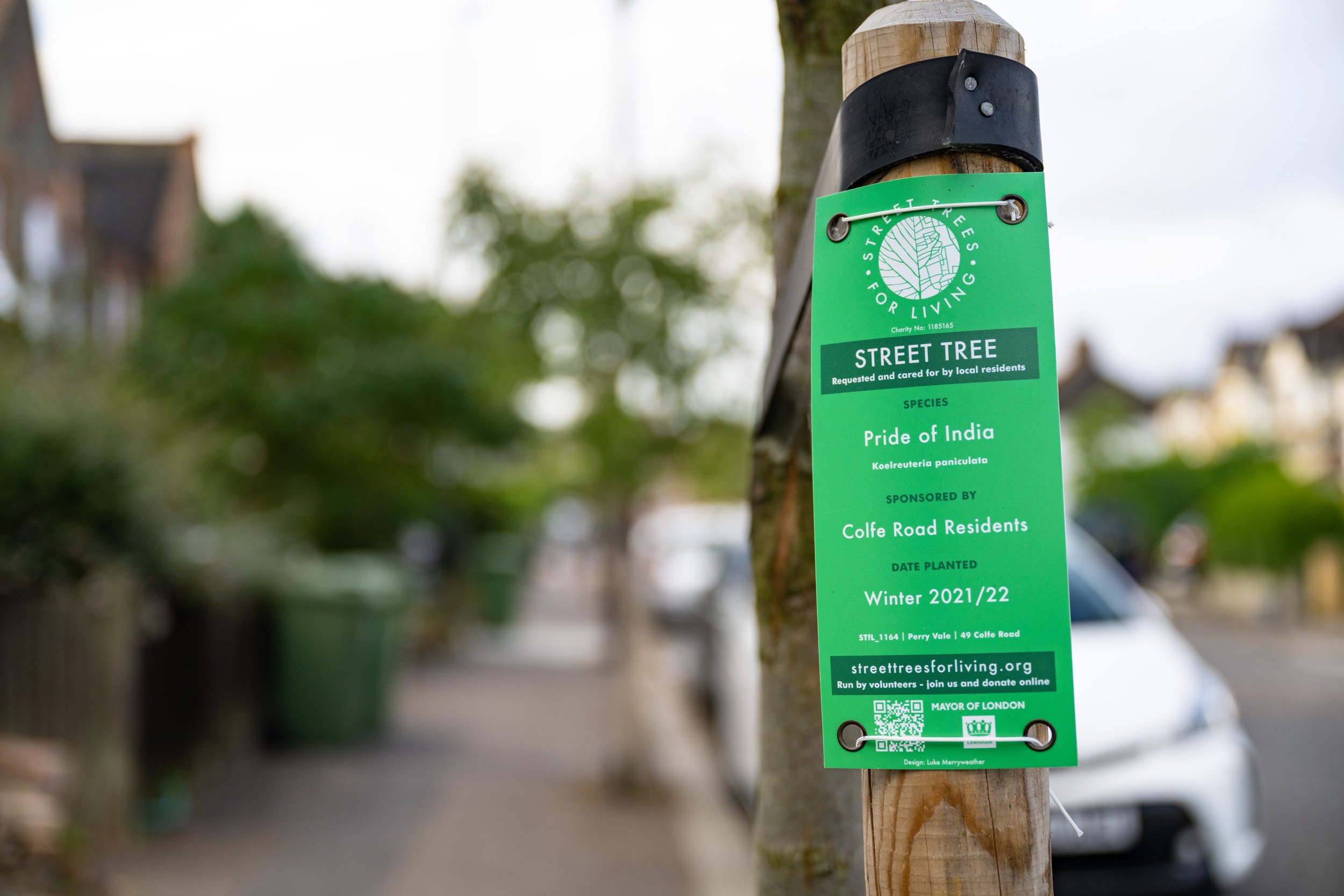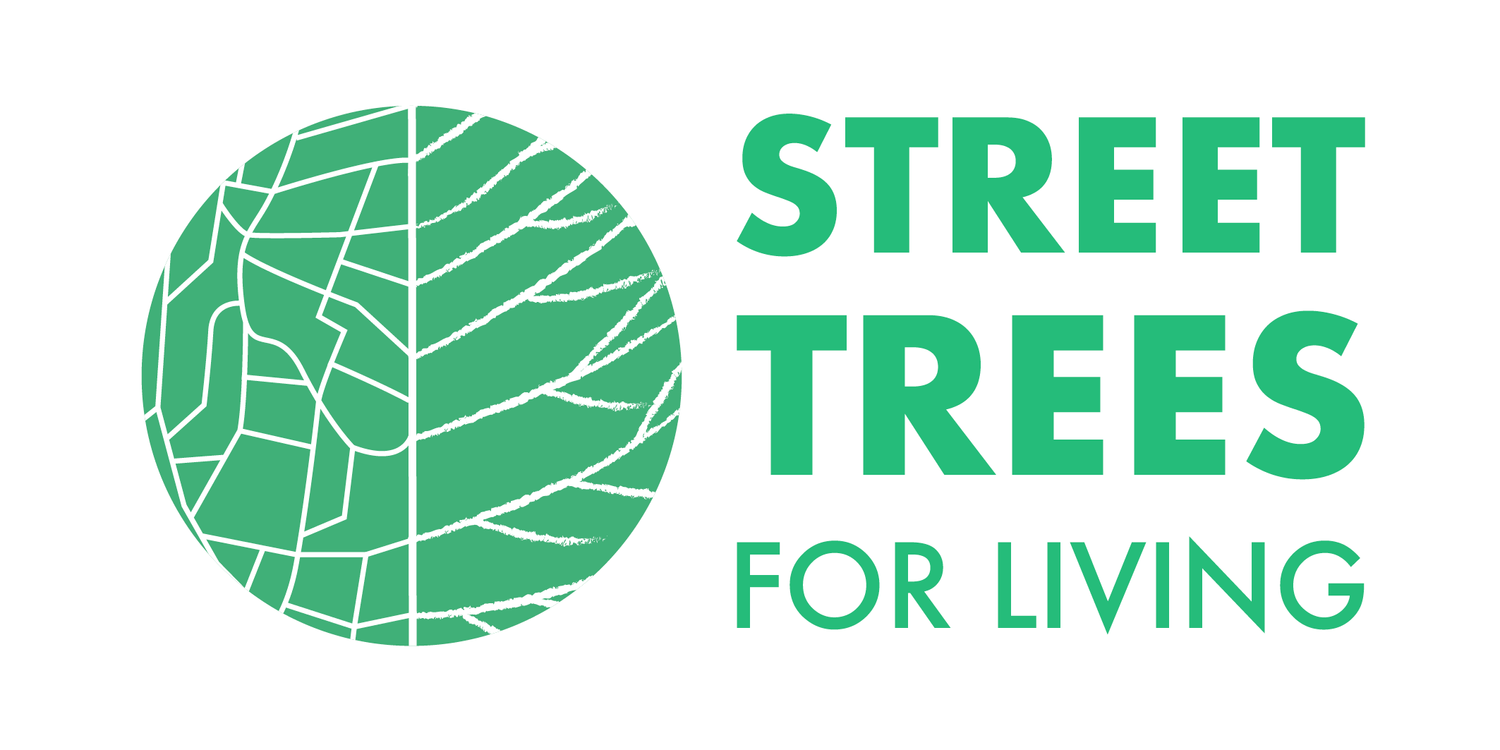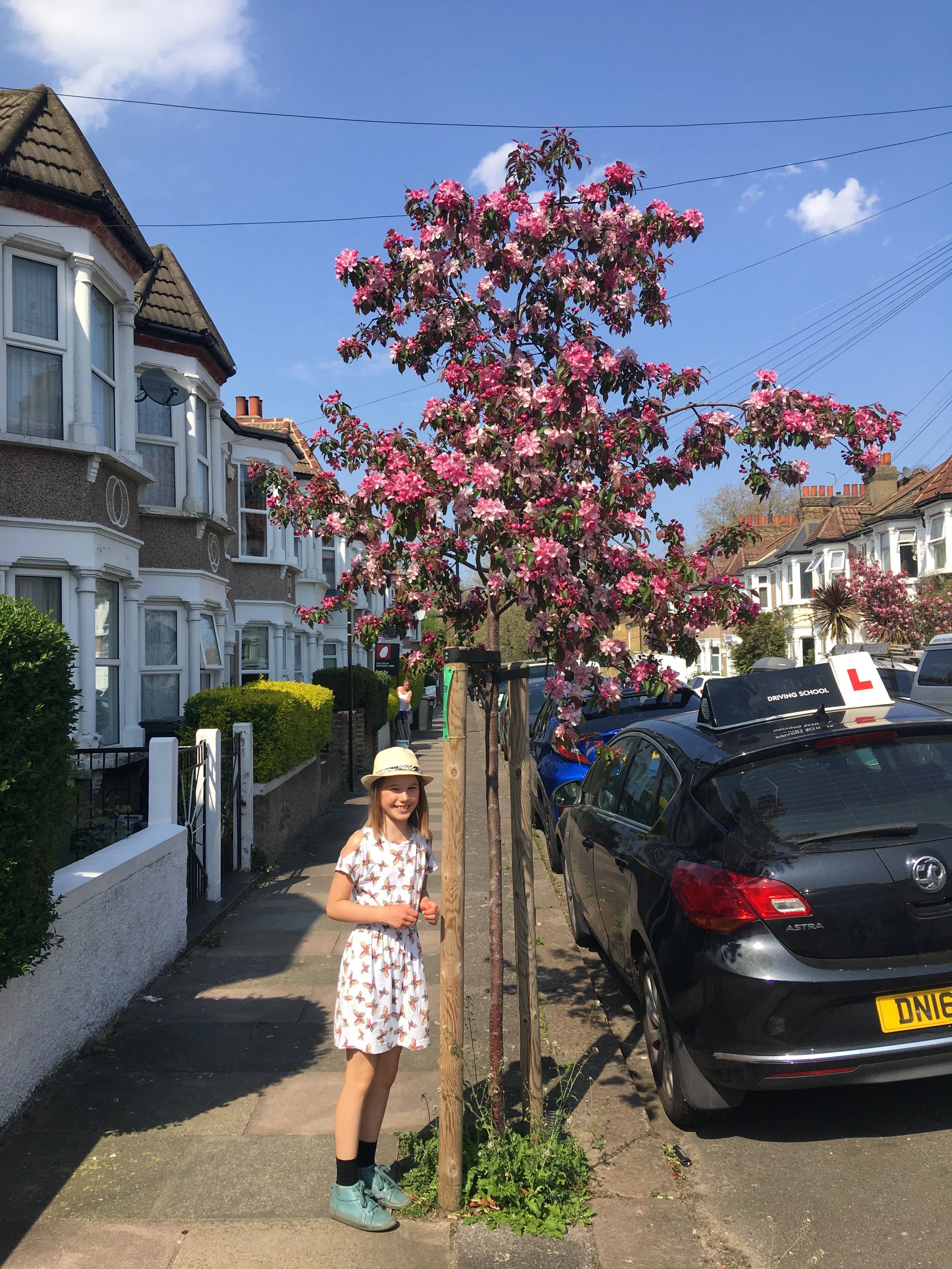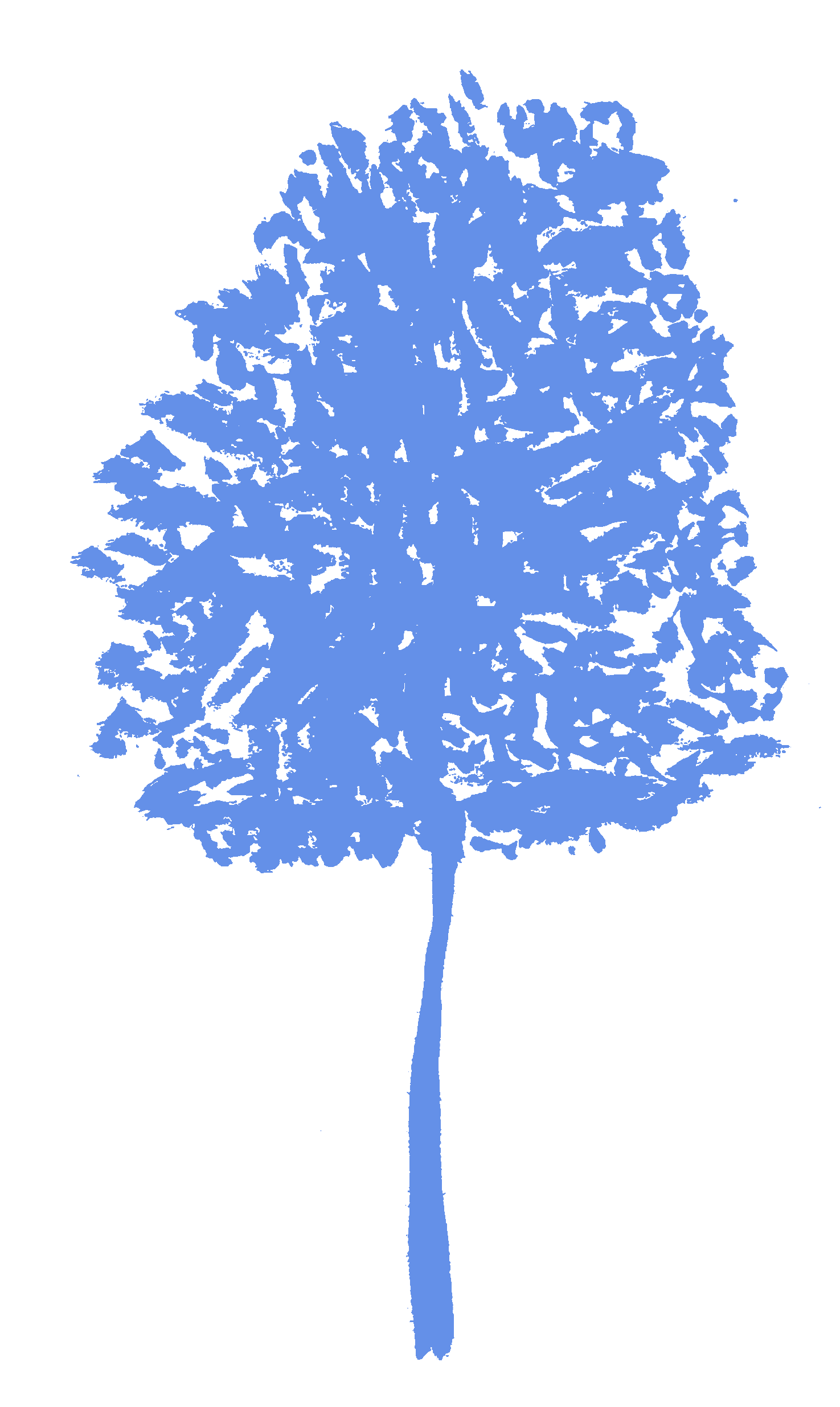

SPECIES GUIDANCE
Choosing your tree
From pavement widths to pollen count, there is lots to consider when choosing a tree.
We aim to ensure a variety of street trees across London as well as choosing species best suited to the location.
The best tree for your street
How wide are the pavements on your street?
In general the smaller your pavement the smaller should be your tree. In these guidelines we suggest a number of trees for different size pavements. But there are other considerations to take into account.
How exposed or sheltered is your street?
Some tree species have adapted to life in extremely windy conditions such as the top of a cliff. Tamarix are the most wind resistant of street trees and Hawthorn and Cockspur come close behind. Any tree with delicate leaves is unsuitable as its leaves will be ripped off by a strong wind.
How Mediterranean is your street?
Because buildings can both store and reflect heat some of Lewisham street’s have Mediterranean microclimates. For this reason there are lots of Olive trees growing in front gardens, and along Stanstead Road there are several Loquat Trees which both flower and fruit. And as the climate warms such mediterranean trees will flourish. The magnificent Crepe Myrtle may not flower every year but sometimes it does as in the photo above
How can you assess your street?
One way is to walk round your street and the surrounding streets and to see which trees are thriving and which trees are either struggling or are causing damage to the pavement. Another way is to ask your Area Rep for a list of possibilities.
Which trees are high in pollen?
The following trees are high in pollen; Acer Maple (certain species only), Alnus Alder, Betula Birch, Carpinus Betulus Hornbeam, Corylus Hazel, Juglans Walnut, Juniperus Juniper, Ligustrum Privet, Liquidambar styraciflua American Sweetgum, Metasequoia glyptostroboides Dawn Redwood.
Thinking of an Ornamental Cherry?
Widely loved for their blossom, flowering cherries can be extremely destructive to pavements and garden walls, as such Lewisham Council has now stated these are no longer allowed in hard paving and are to be planted in soft verges only.
What do you hope to get from your tree?
Colour? shape? flowers for bees? berries for birds? Or a barrier against the noise and pollution of a busy street?
Do you suffer from hay fever or asthma?
Research indicates that the production of large amounts of pollen from certain trees can have a localised impact on allergy sufferers. Street Trees for Living lists some of the top producers of pollen to be avoided by hay fever and asthma sufferers, and also when planting near to schools or in avenues in public highways. For more information on ways to help reduce risk of exposure to allergic pollen for people living with pollen and respiratory allergy please visit the Allergy UK website.
What species are available?
Occasionally, when ordering trees, it is not possible to meet species requests, usually because a tree is unavailable. In this case, STfL and Lewisham Council will choose the closest possible substitute.
Tree diversity
The 10-20-30 rule (Santamour,f, 2002) is a method of ensuring your tree population remains sufficiently diverse:
No more than 10% should be the same species (prunus avium, wild cherry)
No more than 20% should be the same genus (prunus, cherry)
No more than 30% should be the same family (Rosacea Family)
Our recent tree audit has revealed that of 1110 trees STfL have planted, 418 trees (43%) are within the Rosacea Family, including 173 Prunus, 126 Sorbus, 114 Malus, 40 Pyrus and 30 Crateagus. This means we are exceeding the target of planting no more than 30% of street trees in the same family.
-
Acer Platanoides Crimson Sentry - avaiable
Cornus mas - available
Corylus Colurna - available
Crataegus laevigata Paul's Scarlet Hawthorn* - not available
Crataegus monogyna Stricta Hawthorn* - not available
Crataegus x lavalleei Carrierèi Hawthorn* - not available
Crataegus x prunifolia Splendens Hawthorn* - not available
Ligustrum japonicum Japanese Tree Privet - available
Ligustrum lucidum Chinese Tree Privet - small and only a few available
Liriodendron tulipifera Fastigiata Upright Tulip Tree - small number available
Malus Baccata Street Parade Crab apple* - not available in the right size
Malus Evereste Crab apple* - available - doesn’t always do well
Malus Toringo Crab apple* - available
Malus Mokum Crab apple* - available
Pyrus Calleryana Chanticleer Ornamental Pear - available
Sophora Japonica Japanese pagoda tree - (only plant if there is a front garden) - available
Syringa Vulgaris Lilac - available
Tamarix Salt Cedar - (soft verge only) - small number available
*Please note that these trees are in the Rosacea family. We want to minimise planting too many trees in this family to reduce risk of pests and disease by increasing diversity. For more information see paragraph about street tree diversity above. The donation is on the understanding that the sponsor will water the tree for three years using this guidance. It includes an approx 2.5m tree with two stakes, a guaranteed replacement if the tree fails or is vandalised in the first two years, and a label carrying the sponsor's name, or a name in commemoration, on request.
-
Acer campestre Arends - available
Acer platanoides columnara - available
Acer rubrum Red - (soft verge only) - small number available
Alnus incana aurea Alder - not available
Betula ermanii Silver Birch - available
Beula utilis Jackmontii - available
Cercidiphyllum japonicum - soft verge only and will need a keen guardian- small number available
Corylus colurna Turkish Hazel - available
Ginkgo Biloba Maidenhair - available to be avoided by people with allergies
Gleditsia triacanthos Sunburst Honey Locust - available
Koelreuteria paniculata Golden Rain Tree - small number vailable
Liquidambar styraciflua Worplesdon - available
Liriodendron tulipifera Tulip Tree - only plant in soft verges where there is plenty of space - available
Parotia persica vanessa Persian Ironwood - small number available, extra charge £250
Robinia pseudoacacia Umbraculifera - available
Tilia cordata Winter Orange Small Leaved Lime Winter Orange - available, extra charge £61
Tilia mongolica Mongolian Lime - not available
Ulmus Vada Lobel (Elm disease resistant) - small numbers available
-
Acer Campestre Field Maple - available
Acer Campestre Elegant Field Maple - available
Acer Campestre Elsrijk Field Maple - available
Acer Campestre Lienco Field Maple - available
Acer Campestre Louisa Red Shrine Field Maple - available
Carpinus Fastigiata Upright Hornbeam - available not in areas prone to subsidence
Carpinus betulus Lucas Upright Hornbeam - available
Celtis australis Nettle Tree - not available
Catalpa bignonioides Indian Bean Tree - small numbers available
Cornus mas- vailable - extra charge £137
Juglans nigra - available
Juglans regia - only in grass verge - available
Koelreuteria paniculate Golden Rain Tree - small numers available
Liquidambar styraciflua American Sweetgum - available
Metasequoia glyptostroboides Dawn Redwood - only in grass verges - available, extra charge £106
Platanus x hispanica London Plane - available
Pinus sylvestris Scots Pine - not available in the right size
Tilia cordata Small Leaved Lime - available
Ulmus Lobel - available
Species list
.
Click + to expand list








